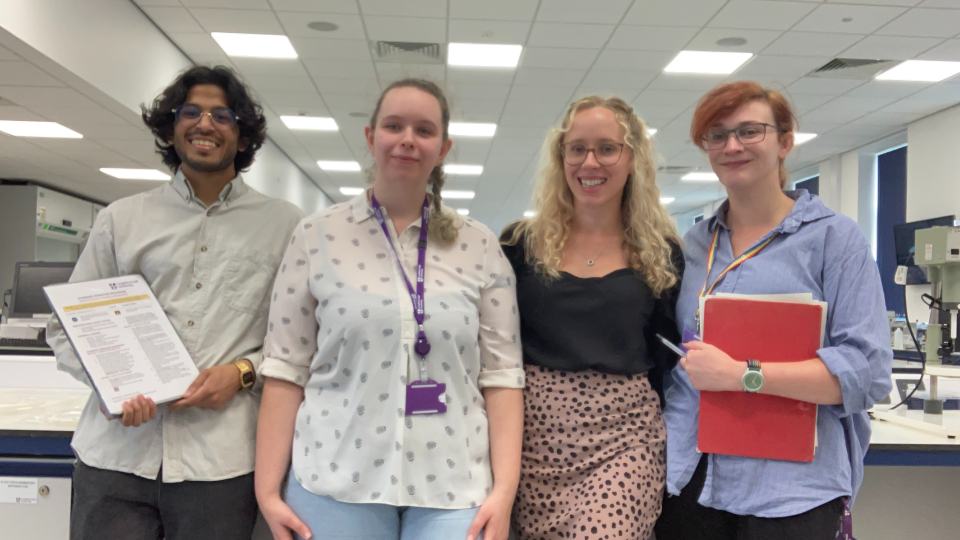Adopted by the University earlier this year, the Laboratory Efficiency Assessment Framework (LEAF) stands as a groundbreaking initiative, providing an essential guide for achieving efficiency and sustainability within laboratory settings.
The LEAF Bronze Awards pay tribute to sustainability-minded technicians and their commitment to promoting sustainable practices, resource efficiency, and responsible consumption within their domains.
Having already won a Multidisciplinary Science Building S-Lab Award upon its construction in 2019, STEMLab has exemplified excellence in operation, management, and sustainable design. Living up to this, the Physics and Optics Laboratory (WPL1.03/1.04), under the supervision of Melvin Chan and Shaun Atherton, and the Analytical Teaching Laboratory (WPL2.01), under the leadership of Claire Richards, have demonstrated an outstanding commitment to resource efficiency. Both these labs have displayed their forward-thinking approach by including plans for life-cycle assessments, increased signage, and the reduction of single-use plastics. The technicians' proactive measures and clear dedication to sustainable practices in educational settings provided an exemplary model for achieving their Bronze Awards.
While teaching labs have shown great promise, research labs are not far behind. Through the dedicated efforts of Rainer Fernandes and Andrew Edwards, the Thin-film Cleanroom (WU.010/016) in Sir David Davies Building has made significant strides in enhancing sustainability within its space. The lab's well-managed and sustainable practices have focused on chemical buy-in from users, pushing for more sustainably produced chemicals and reducing unnecessary consumption.
These technicians have put in a great deal of work in ensuring their labs are not only sustainable but adhere to general best practice. In fact, measures taken to keep laboratories working efficiently and compliant with health and safety often overlap significantly with sustainability goals.
Nik Hunt, Environmental Manager at Loughborough said: “It is great that we are seeing the first laboratories embedding sustainable practices as evidenced by achieving the LEAF Bronze award. This will surely inspire those who have not already started to consider LEAF to do so. We also know the competitive nature of the University will encourage more to achieve Bronze and a desire for those already with Bronze to strive to achieve Silver. A hearty well done to the individuals driving LEAF for their Departments and Schools.”
The LEAF framework is supported by the University’s use of WARPit, the Schools Carbon Action Plans, Sustainability Development Goals 11, 12 and 13 and the relaunch of the Kit Catalogue (coming soon).
